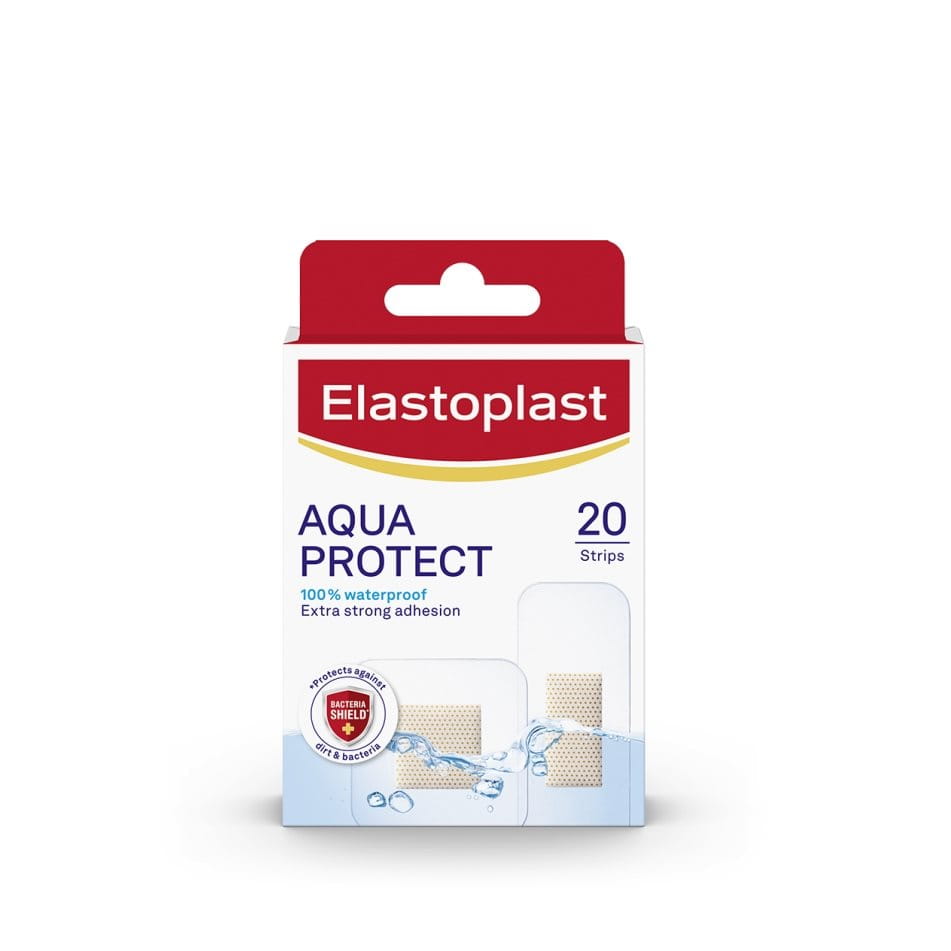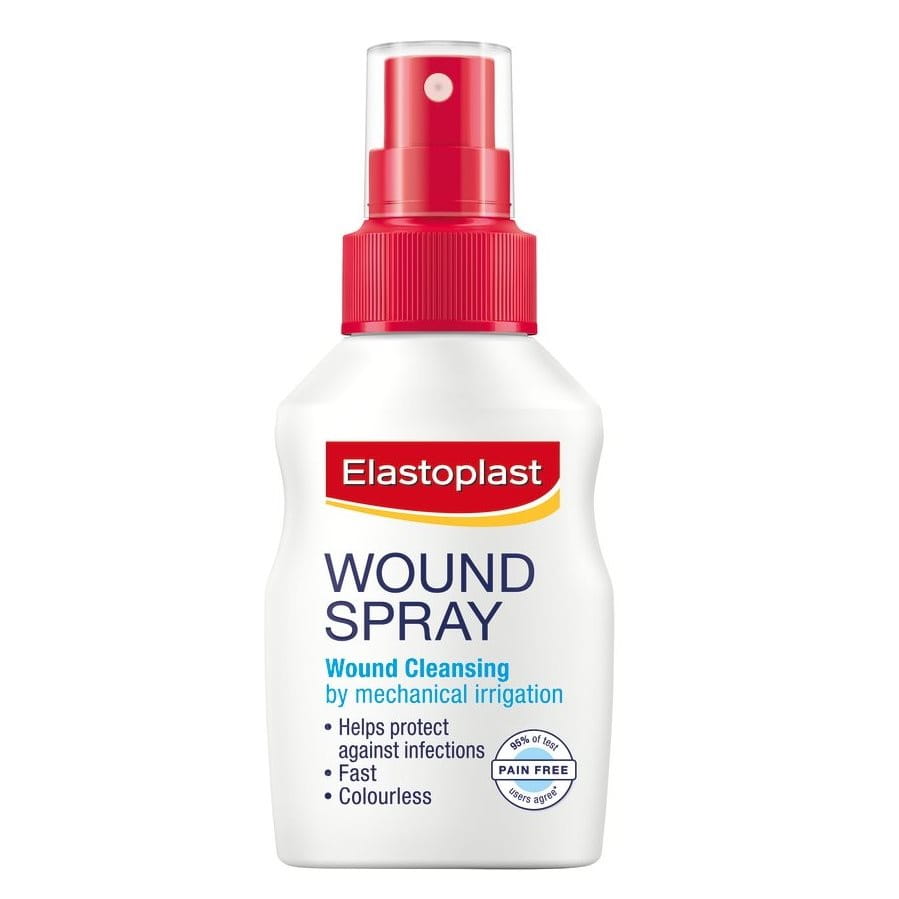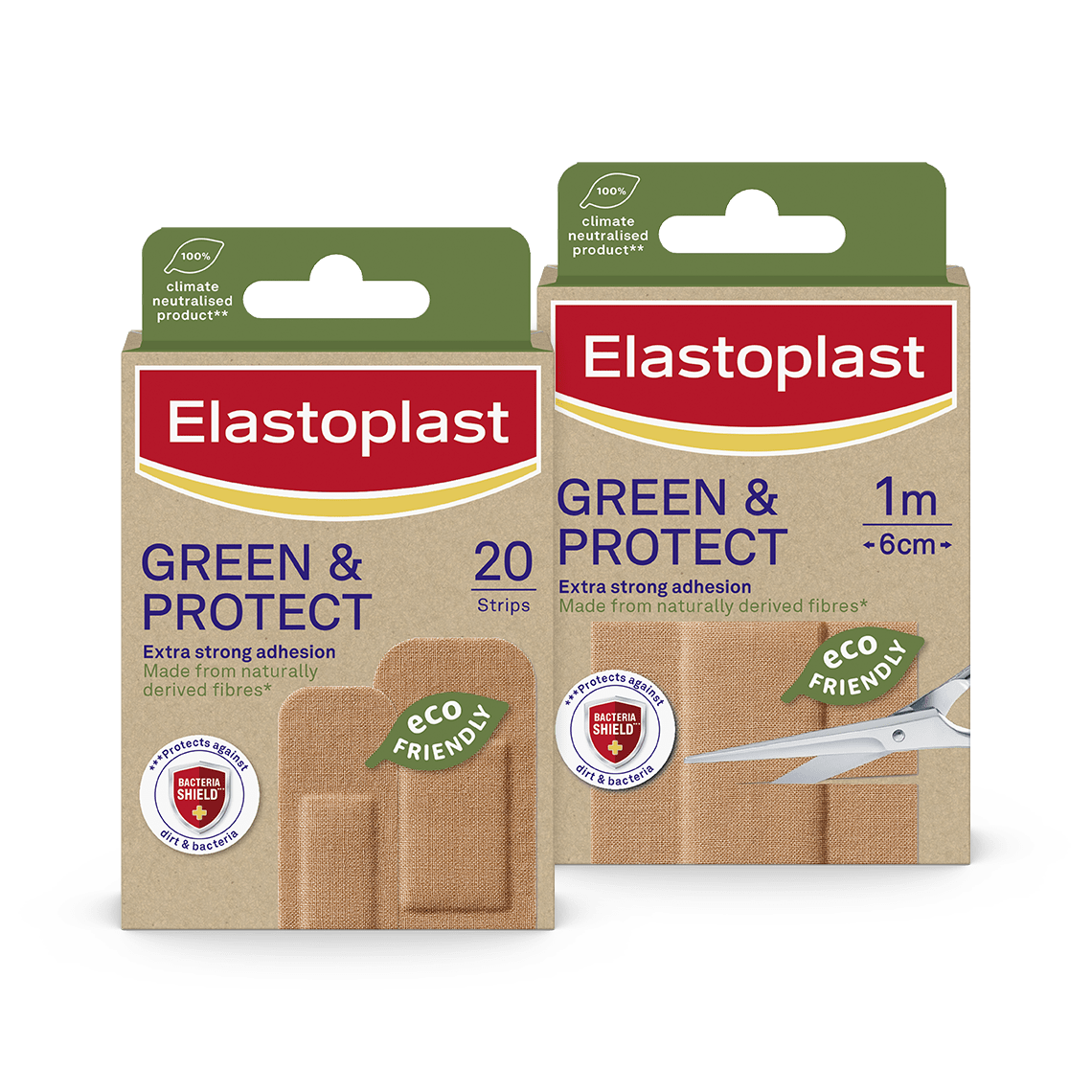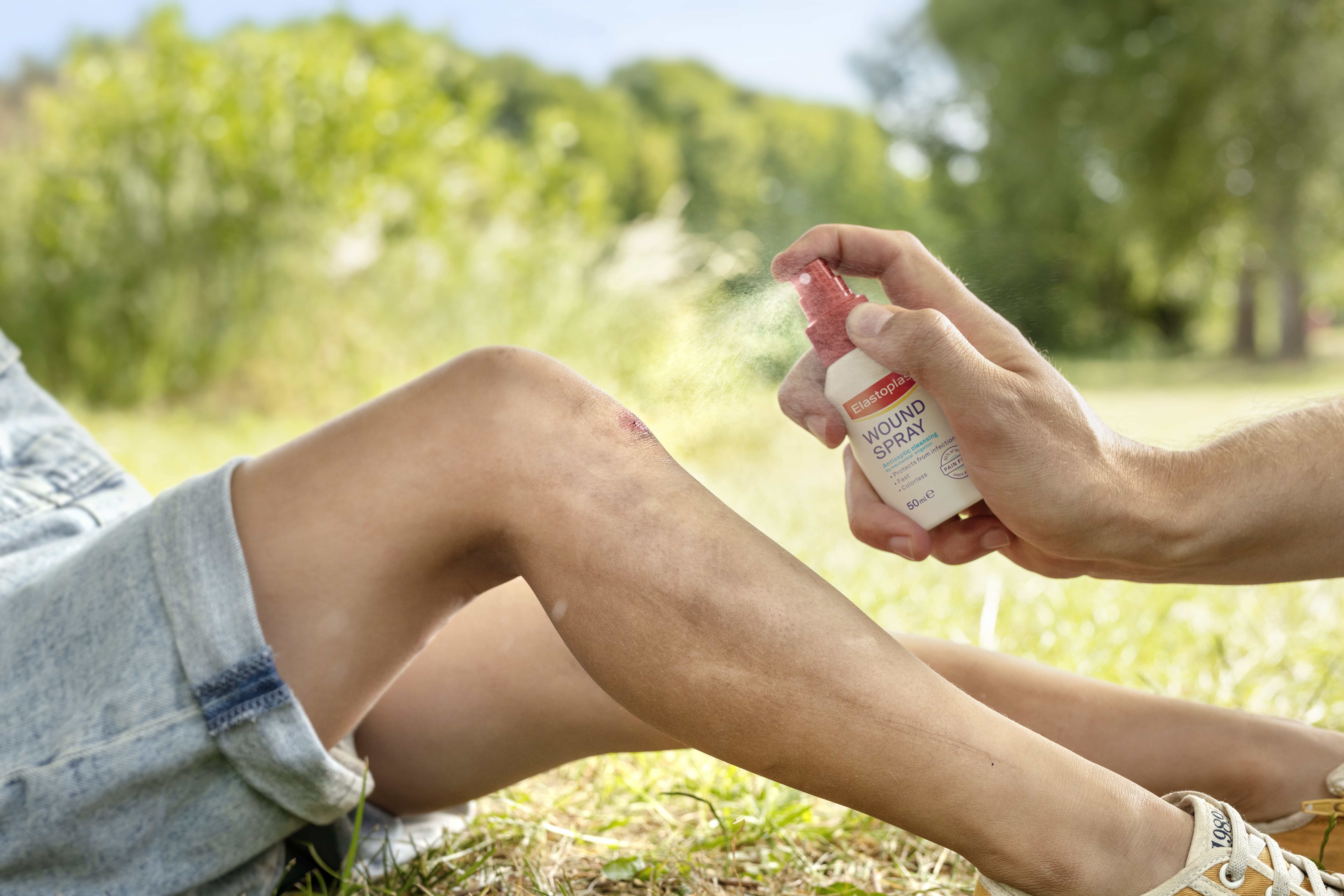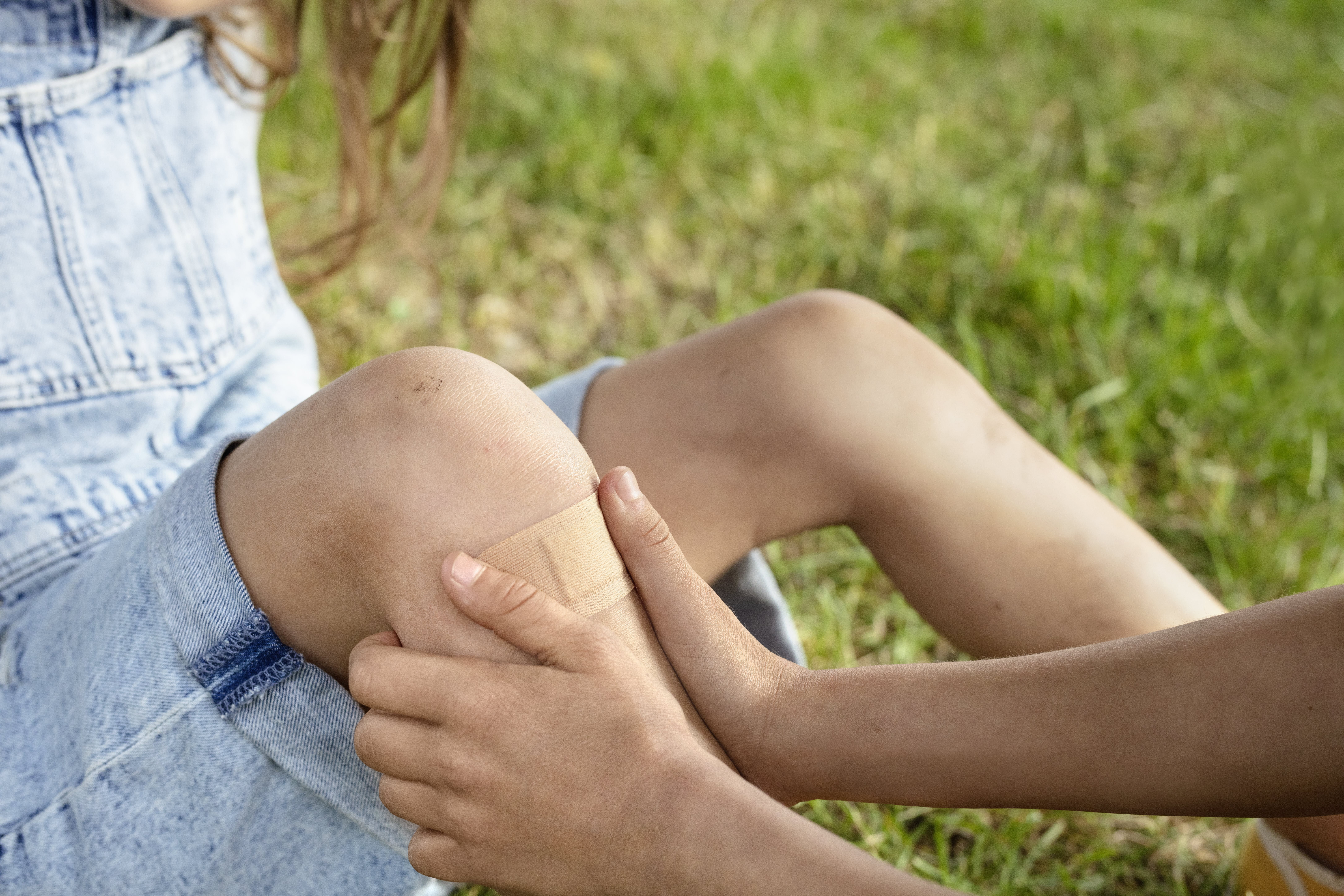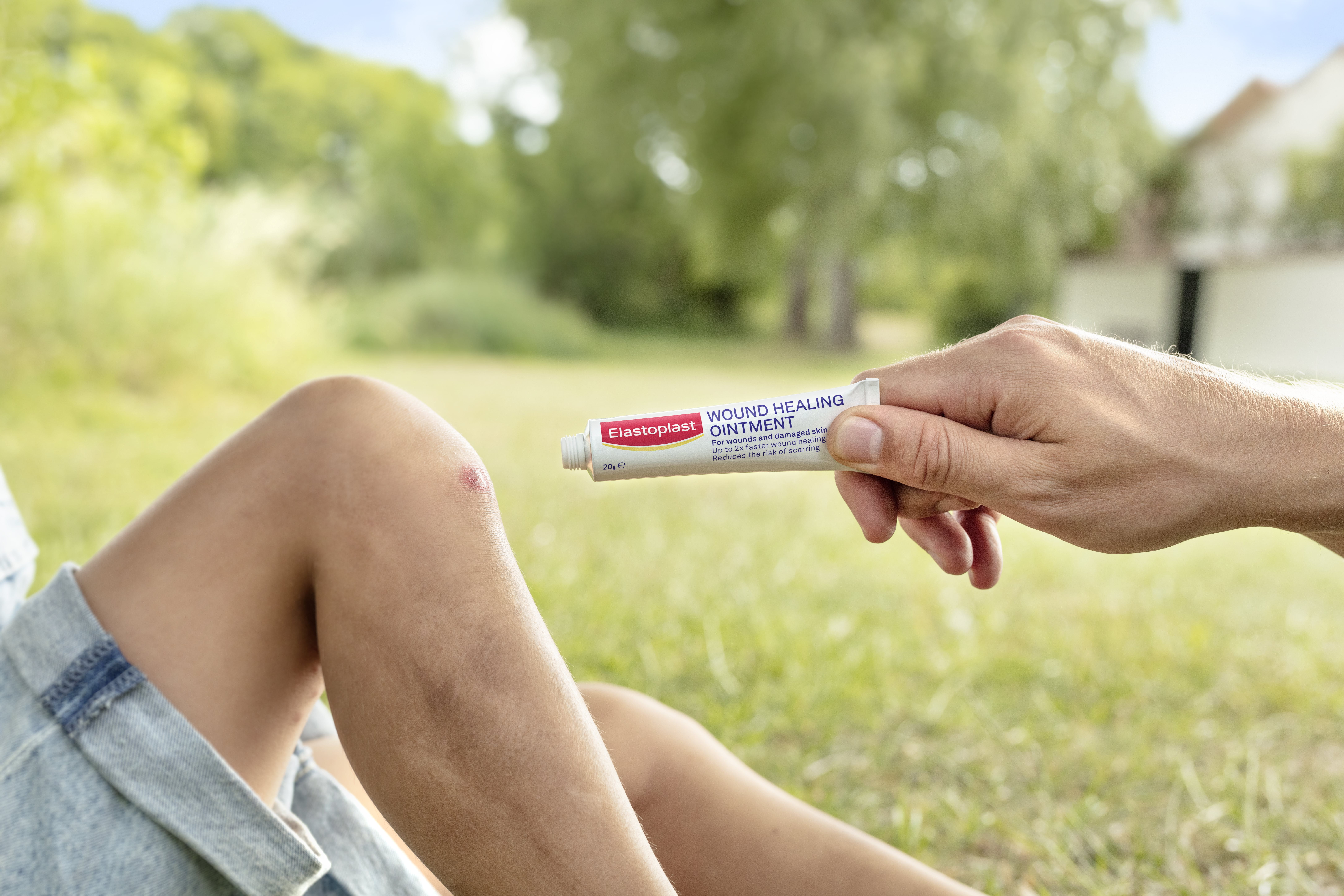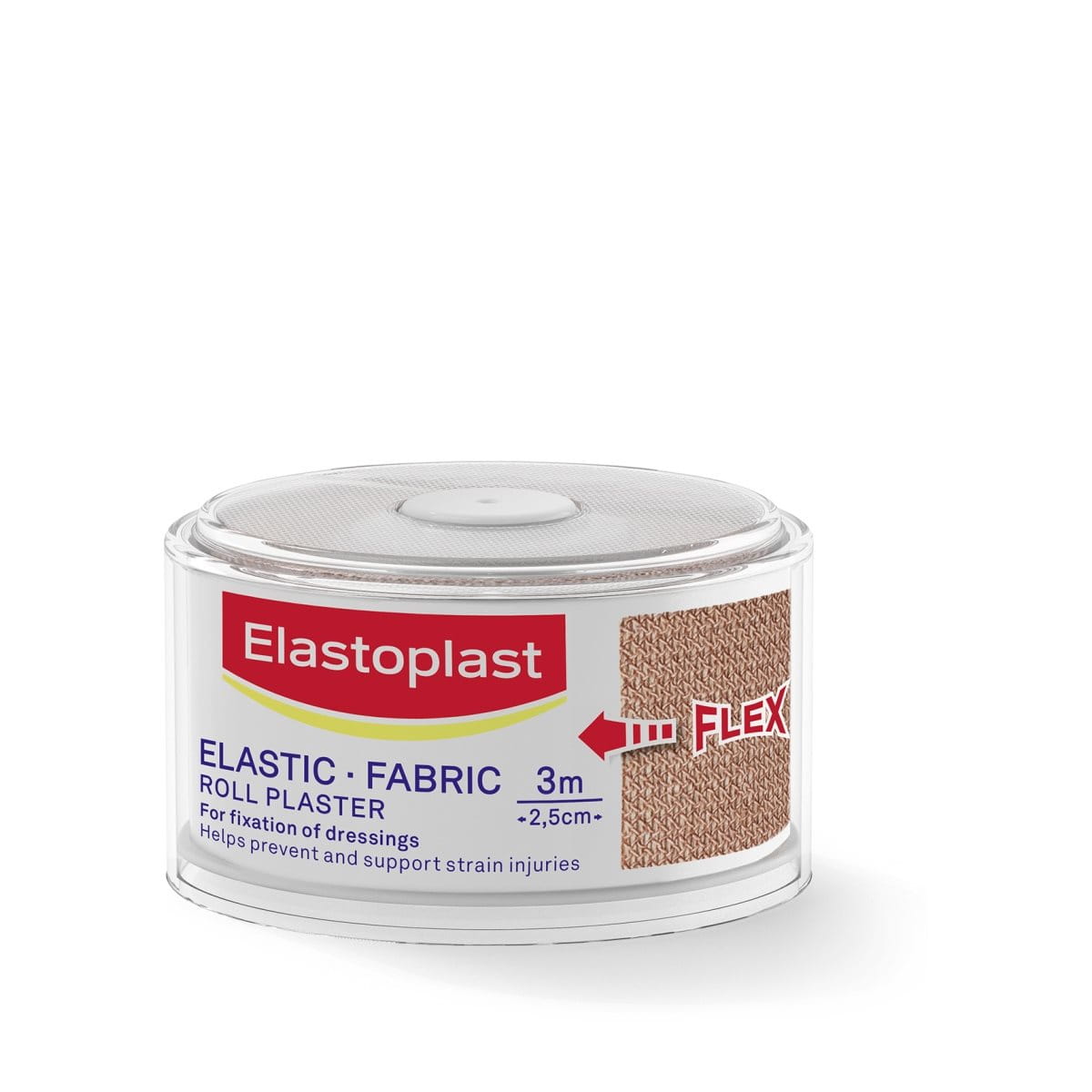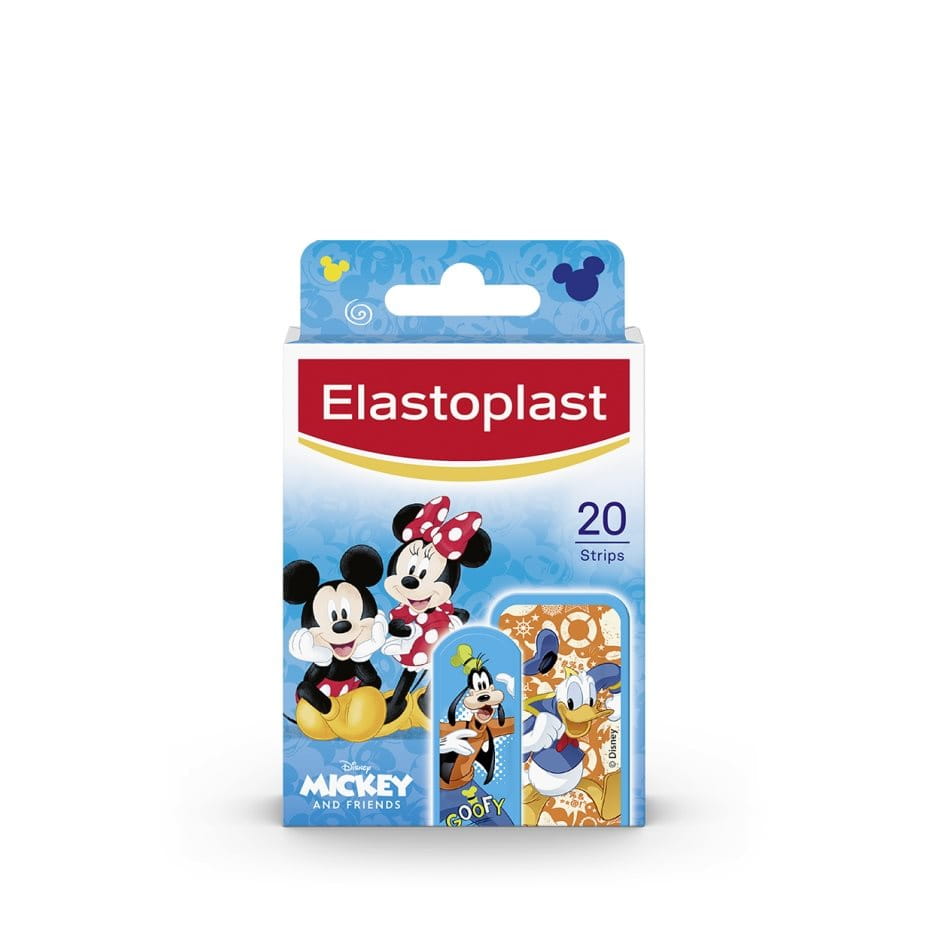GREEN & PROTECT Plaster
Product Info
GREEN & PROTECT
*The wound pad and backing are made from naturally derived fibres and are fully biodegradable. All materials with botanic origin are sourced from FSC® certified forests (Beiersdorf FSC® license number is FSC® N003710).
**The electricity used in the production process is generated from 100% renewable sources. All remaining emissions are compensated through certified afforestation projects.
Our GREEN & PROTECT plasters have an extra strong adhesion while being water repellent and durable. The non-stick wound pad cushions and protects the wound.
*Elastoplast plasters block 99% of dirt and bacteria.

• as strips in different sizes which seal all around the wound and
• as dressing length which can be cut to the ideal size.
Water repellent and durable material.
*Skin compatibility dermatologically approved.


The Afforestation Project
Our GREEN & PROTECT products are 100% climate neutralised via carbon offsetting, through certified afforestation projects. The chosen project is located in the Chinese province of Guizhou and covers a total of 23,700 ha of formerly barren land. The aim of the project is to contribute to climate change mitigation through sequestration of atmospheric CO2 during biomass growth whilst also contributing to local sustainable development, environmental and biodiversity conservation and enhancement of soil quality. All afforestation activities are carried out in collaboration and with full consent of the local village committees and the villagers. The trees planted are predominantly native species such as Masson Pine, China Fir, Cypresses and Pinus Yunnanensis.
How To Use
Ingredients
| Product | Type | Size | Quantity | ||||
|---|---|---|---|---|---|---|---|
| Product: |
GREEN & PROTECT 1 m x 6 cm (Dressing Length) |
Type: |
|
Size: |
10 cm x 6cm |
Quantity: |
10 Pieces |
| Product: |
GREEN & PROTECT 20 Strips (assorted) |
Type: |
|
Size: |
22 x 72 mm |
Quantity: |
14 Strips |
| Product: |
GREEN & PROTECT 20 Strips (assorted) |
Type: |
|
Size: |
30 x 72 mm |
Quantity: |
6 Strips |
FAQ (8)
-
1. How often should I change my plaster?
Usually, it is recommended to change standard first aid dressings daily due to hygienic reasons. Some advanced plasters such as the Fast Healing Plaster that provide moist wound healing conditions are recommended to be left in place for up to two days or more in order not to interrupt the healing process. -
2. Is it better to let small wounds dry in the fresh air instead of putting on a plaster?
It is one of the wound care myths that keeping minor cuts and grazes uncovered and let air to them helps them to heal faster. The contrary is true! Research shows that covered wounds heal more efficiently and have a reduced risk of infection. Elastoplast products provide protection until the wound is completely healed. -
3. When should I consult a doctor?
We recommend contacting a medical professional under the following circumstances:
• if the wound is deep and causing major bleeding
• if the wound shows signs of infection such as redness,
warmth, pain and swelling
• if there are embedded foreign objects in it
• in case of animal or human bites
• if the wound is in the area of the face
• if there is insufficient tetanus vaccination
• and of course always when you have questions or are uncertain. -
4. What if my wound gets infected and suppurates?
You should contact a medical professional if you recognize signs of infection. This is not only the occurrence of pus but also swelling, redness, heat, pain, itching or burning. In case of infection the wound will need medical care and special medical treatment. -
5. Which Elastoplast plasters are eco-friendly?
Our GREEN & PROTECT range is our first eco-friendly plaster range where we have looked at all components of the product and assessed more sustainable alternatives. Nevertheless, we at Elastoplast commit to work continuously to maximise the performance of our portfolio while minimizing our environmental & climate footprint. And this includes our whole wound care portfolio as the recent and future adaptations of our products are always evaluated to pay into our overall sustainability ambition. This is why, for example, our plasters are produced in our factory with 100% electricity from renewable sources. In addition, since 2021 the products are available in lighter folding boxes that are designed for great recyclability, to save paper and to support a circular economy. The paper or cardboard packaging used is FSC®-certified (Beiersdorf FSC® license number is FSC® N003710) and furthermore we removed the plastic from most of our sealing pouches. We are continuously working to make all our products more sustainable and have ambitious goals to achieve in the future. You can learn more about our efforts and achievements in the article "Our commitment to sustainability". -
6. Are all components of the GREEN & PROTECT plaster sustainable?
Looking at the key components of the plaster, we identified more sustainable materials for our GREEN & PROTECT range. The backing material is made from a woven fabric, with 100% viscose fibre. The viscose fibre is from botanic origin (wood) and made from renewable resources, it is FSC®-certified (Beiersdorf FSC® license number is FSC® N003710) and fully biodegradable in fresh water. Our new wound pad is made entirely from naturally derived fibres which are biobased and biodegradable. Additionally, the paper used in our release liner is FSC®-certified (Beiersdorf FSC® license number is FSC® N003710) to maximize sustainable sourcing, while the silicone coating is biomass balanced, meaning the raw materials used in production are produced from bio-methanol made from renewable feedstocks. The adhesive is the only element without sustainability improvements yet, as there is no eco-friendly substitute currently available. We are continuously looking for new alternatives to increase the sustainability level even further without compromising on the performance and safety of our products. -
7. Why do the GREEN & PROTECT plasters come in a brown folding box?
We looked at all components of our GREEN & PROTECT range, incl. the packaging. Our folding box is made from 93% recycled carton which is also recycable at the end of the product life cycle. The material is left unbleached, which explains the brown color of the box and comes at the lowest weight possible for the material used. -
8. How does climate neutralisation through afforestation projects work?
Carbon circulates within a cycle, consisting of the atmosphere, the plant, plant litter and the soil. Deforestation breaks this cycle with a multitude of negative effects. Planting trees is an effective way to reverse these effects and remove carbon from the atmosphere for several decades. Carbon dioxide drawn from the surrounding atmosphere is the main input of any plant’s photosynthesis process. The outputs are water, oxygen and carbohydrates. The latter are built into the plant’s fibre thereby fixing carbon in the plant‘s biomass.
